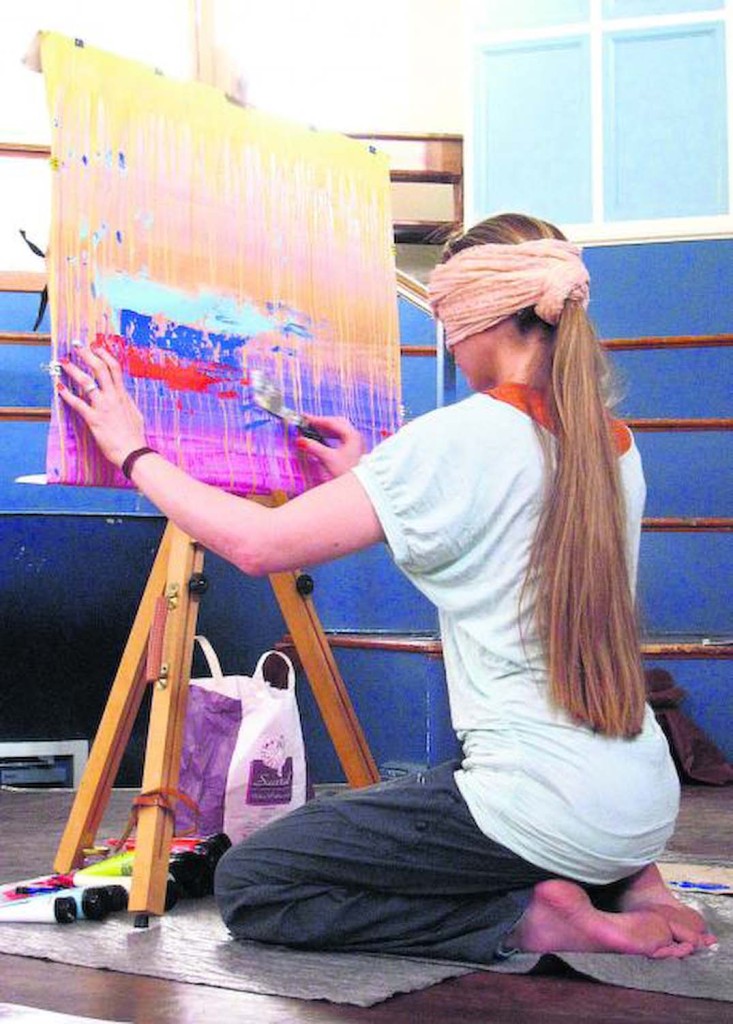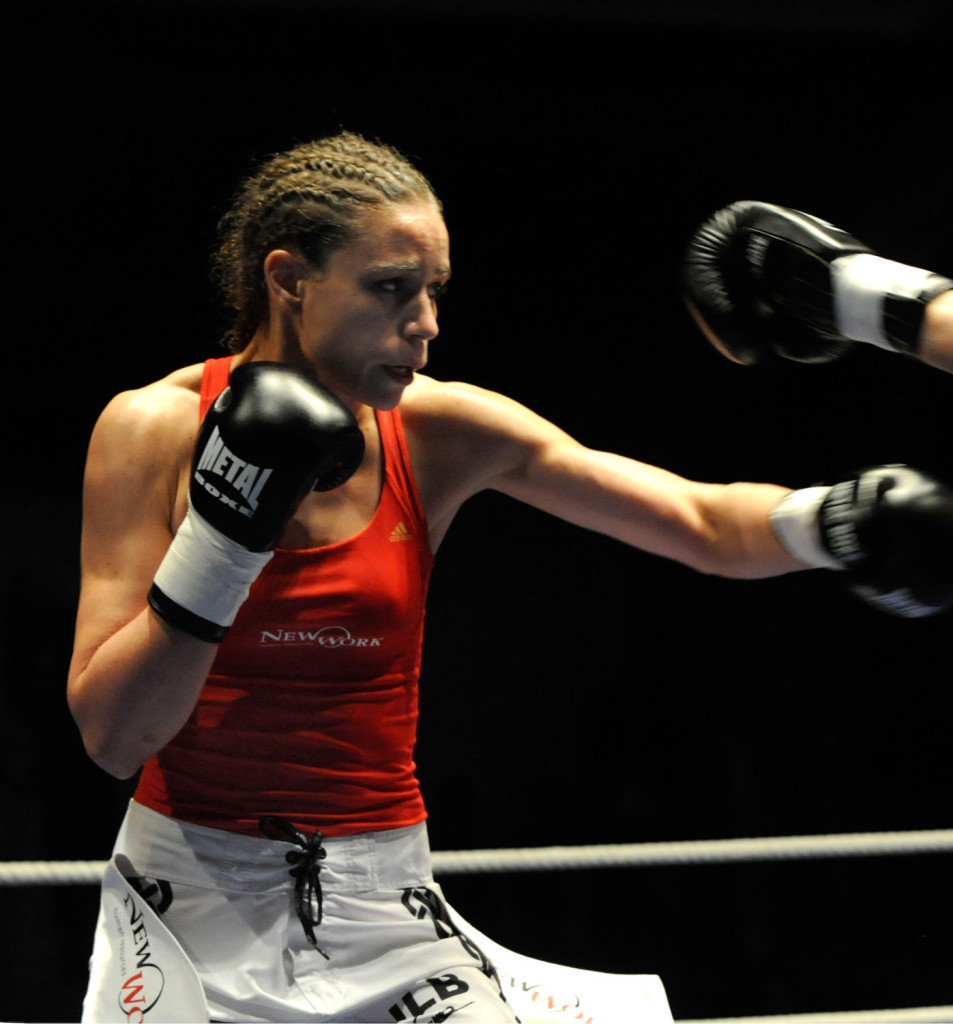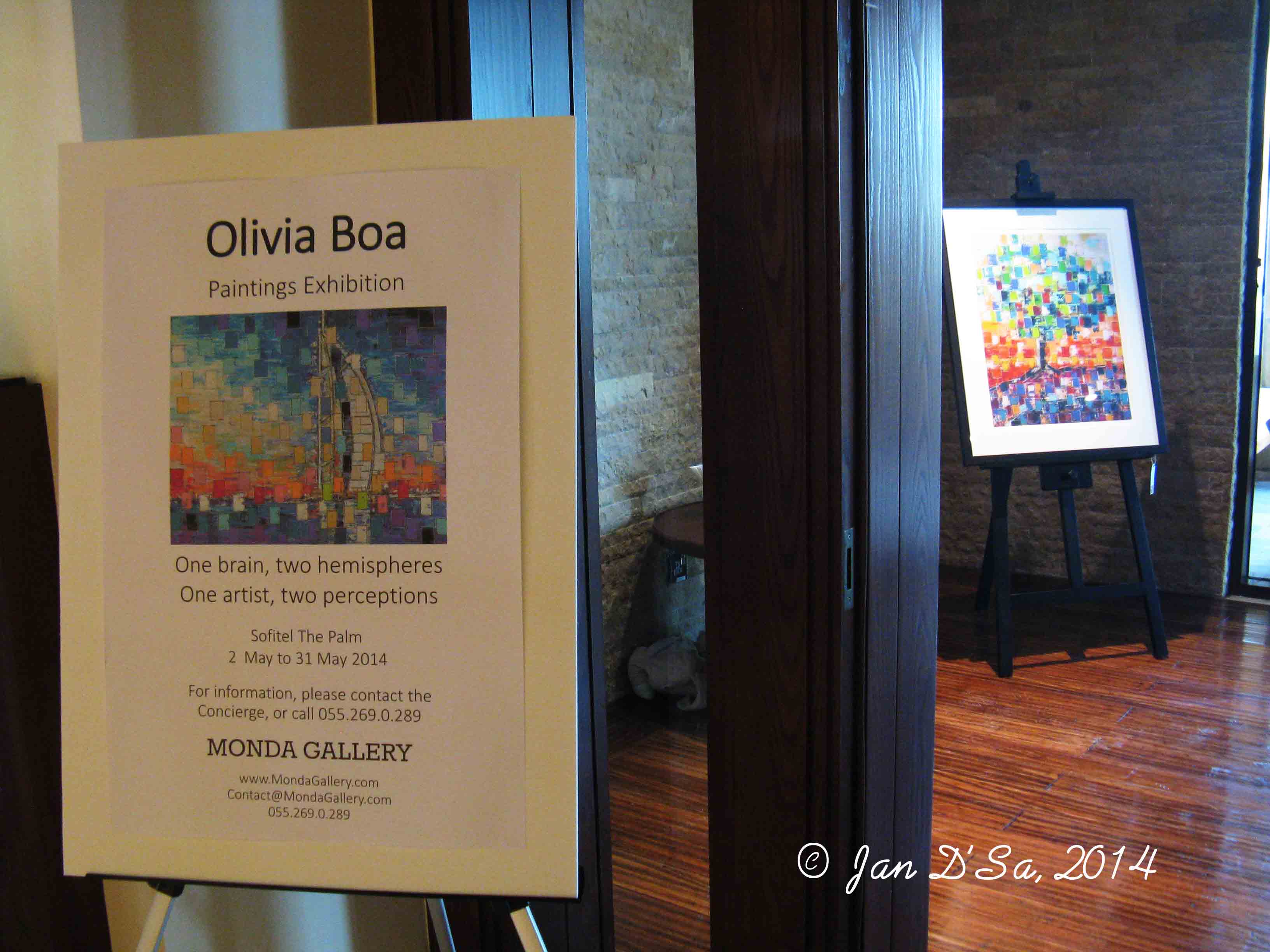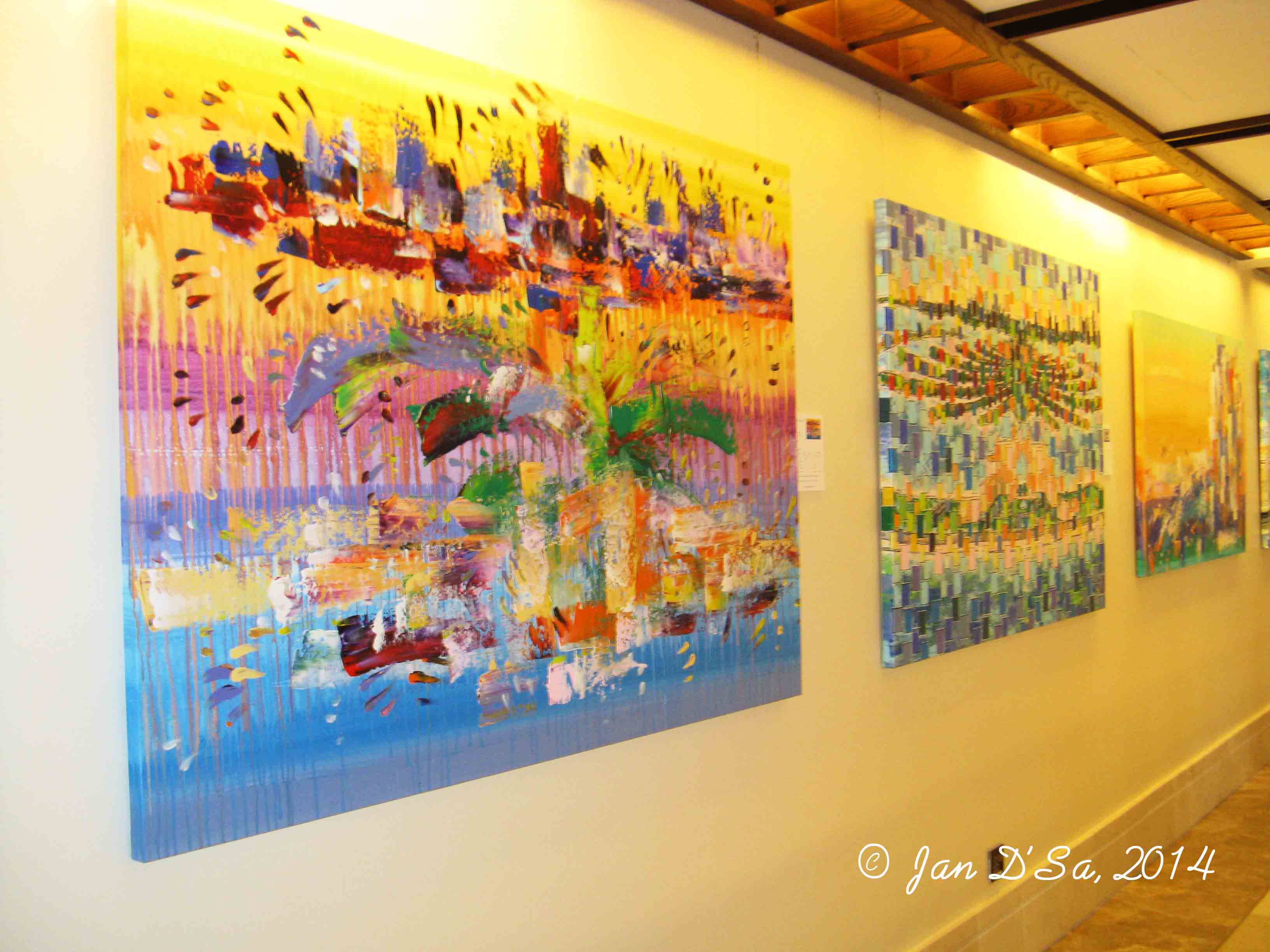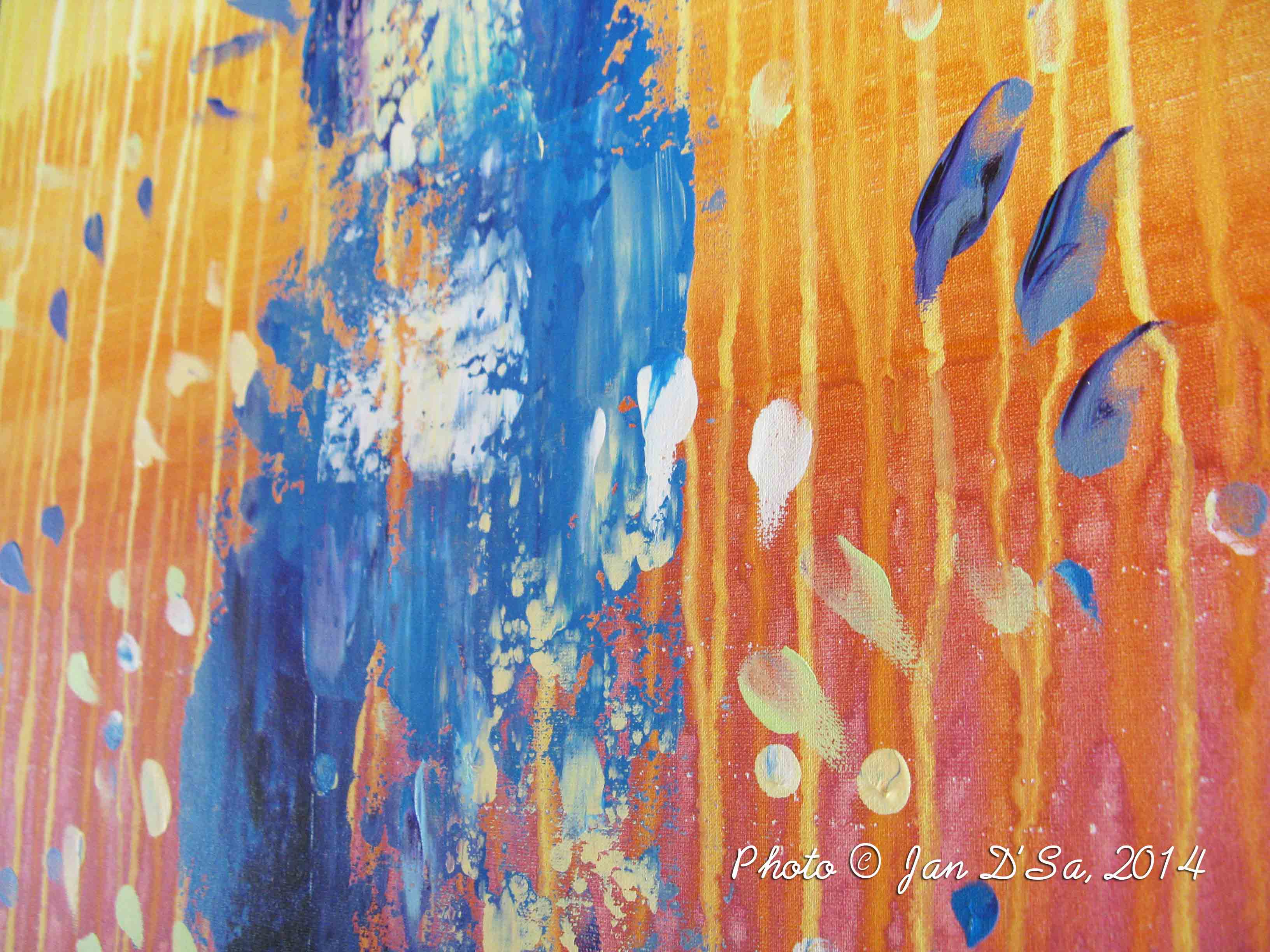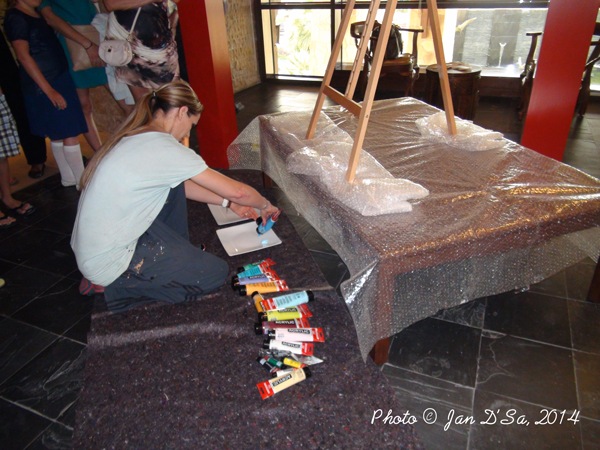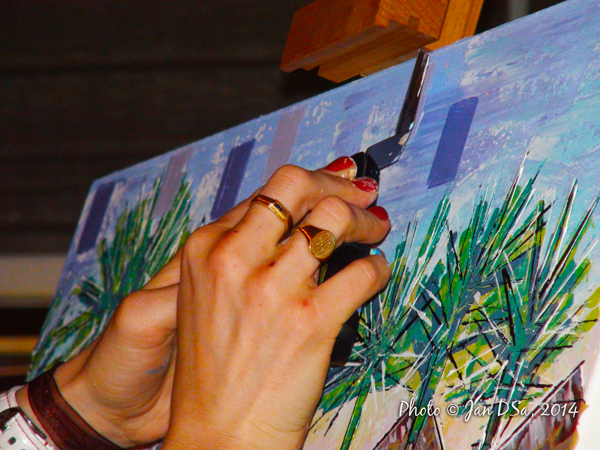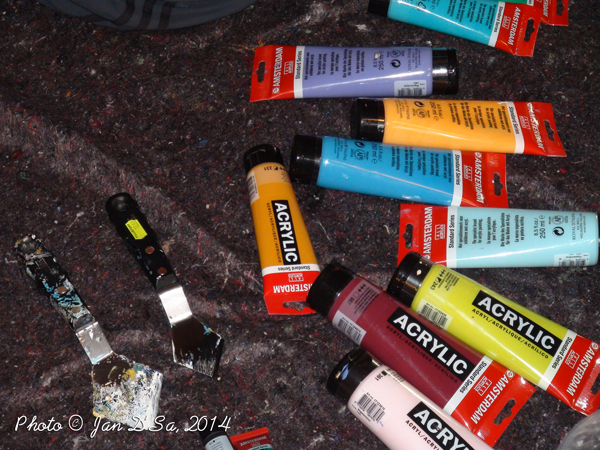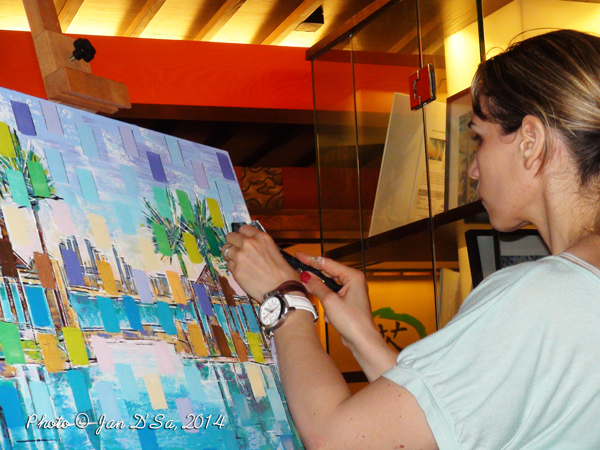When I first saw Olivia Boa’s paintings hanging on the walls of Hotel Sofitel Dubai The Palm, Resort & Spa, I had this sense that the artist was not only involved in the area of science and health like me, but that she leads a colourful life. That’s because (and I was to find out later) that not only was she a boxing champion, she has been a journalist, a well-traveled model and she has studied under Yves Armani the painter. She is also a therapist in Fribourg, Switzerland, where, in her words, “I help patients who experience acute stress and depression through a combination of psychological counselling and acupressure.” As a result, it almost feels that Olivia is an artist-therapist after my own heart.
The other thought that hit me while I walked through the hotel’s grand reception was the rising trend in collaborations between artist or art galleries in Dubai coming together to deliver new soulful experiences to their guests. I have already written about the Noon Art Boutique Hotel‘s venture into art themed experiences at their hotel, and there are many other hotels indulging in the same. I was curious to find out what inspires the Sofitel hotel to go down the route. I was told that culture is one of the three pillars of the Sofitel Brand. The Sofitel philosophy is to mix French culture with the best of local culture. Finding an artist that fits in with the Sofitel spirit and French culture has helped them find Olivia Boa who is a French national and who proposed paintings that featured Dubai landmarks.
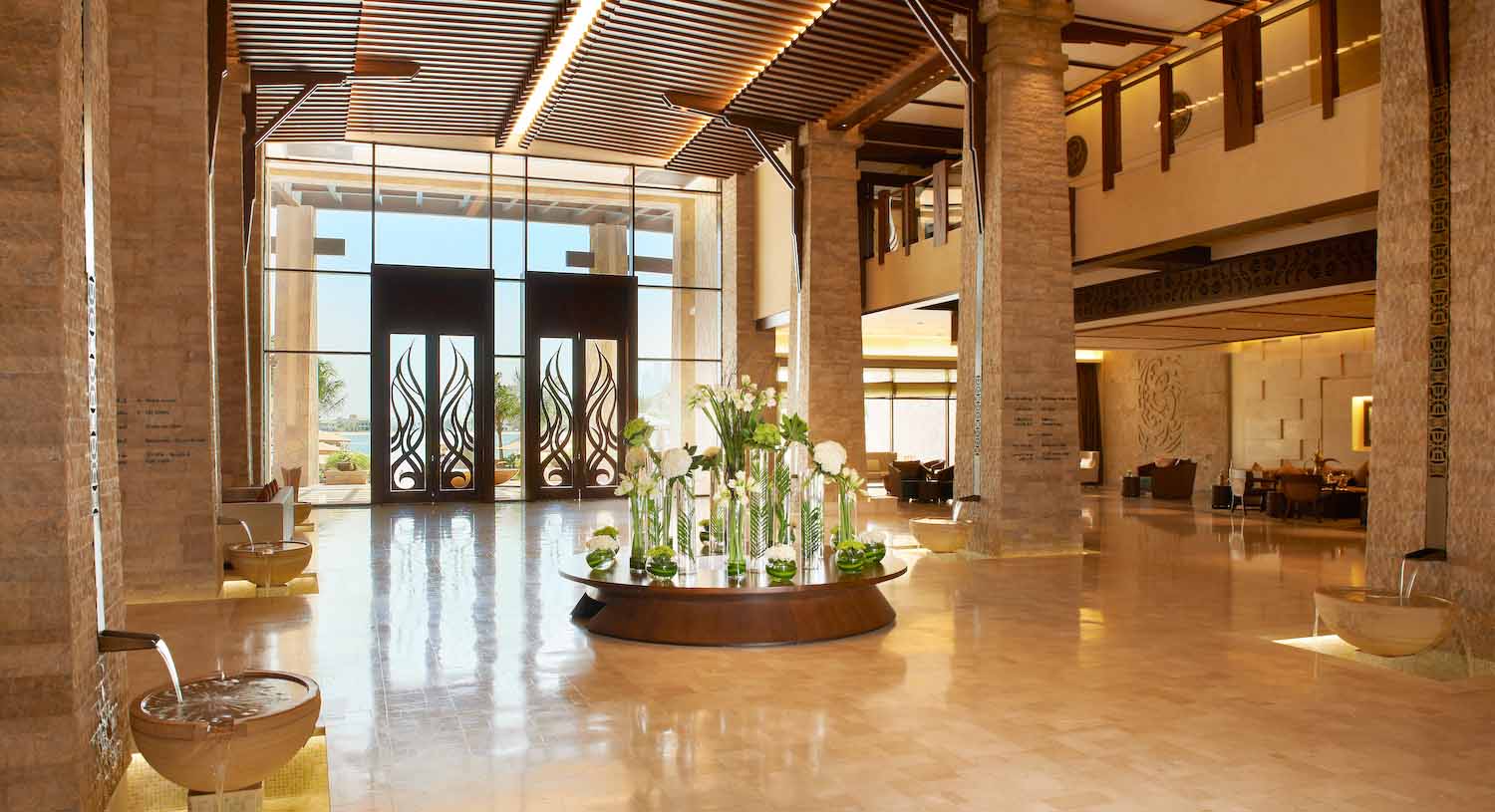
I walked through the lofty lobby of the Hotel Sofitel the Palm, right to the back of the hotel. Taking the staircase up to the first floor, I was greeted by spectacular artwork by Olivia Boa. Supplied photo, used with permission.
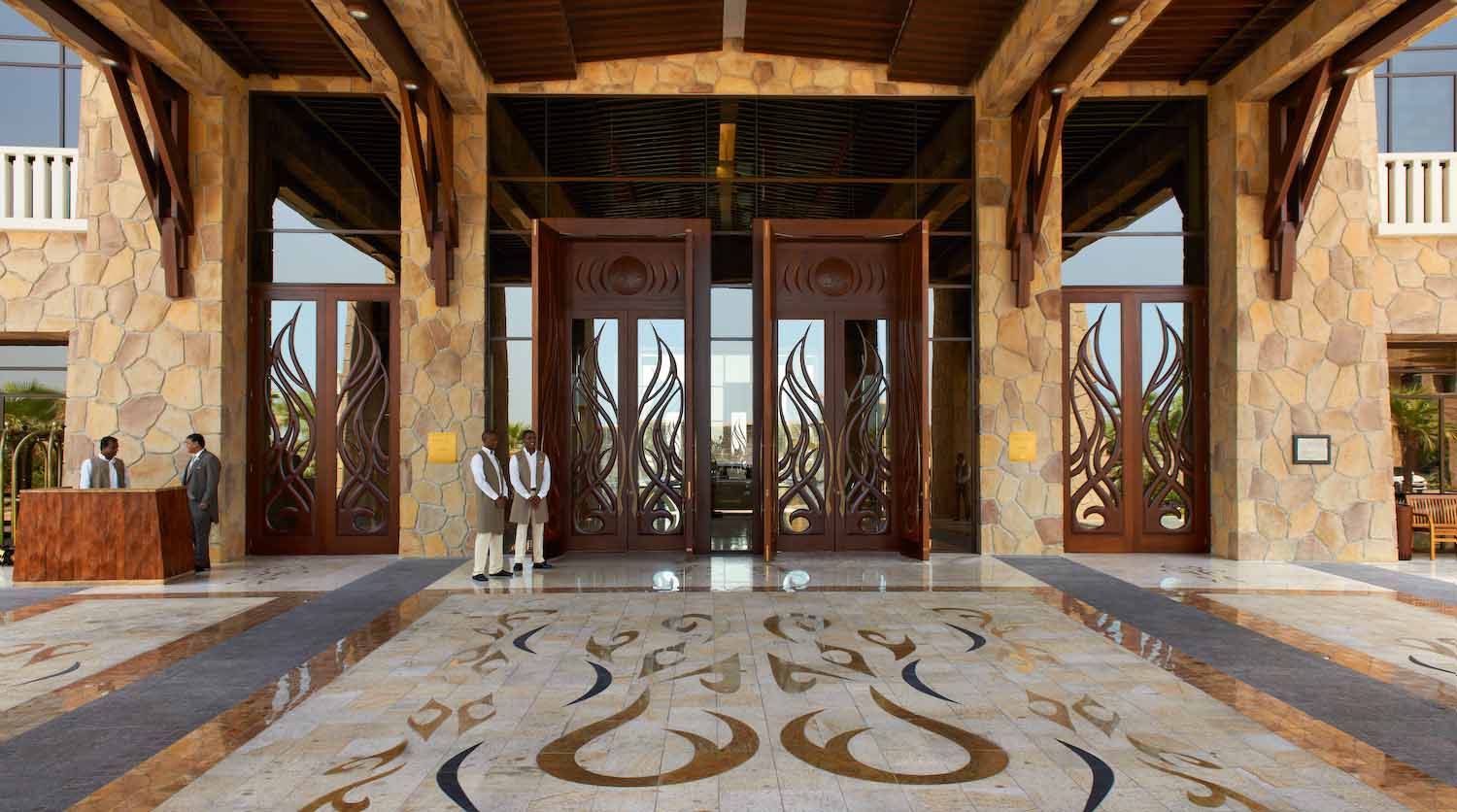
Beginnings and endings. The entrance to the Hotel Sofitel Dubai the Palm. This is where I caught the cab to get home after the exhibition. Love the powerful mix of wood and stone on the hotel’s exterior. Supplied photo, used with permission.
‘Blind’ and ‘Pixel’ art techniques
For her exhibition at this hotel (ongoing till the 31st of May, 2014), arranged with Monda Gallery, Olivia prepared a feast of ten original Dubai themed paintings, using ‘two perceptions’ as she likes to call it. She has called upon the magnificence of one brain, which has two hemispheres. From this concept of ‘one brain, two hemispheres; one artist, two perceptions,’ she has developed two complementary styles called ‘pixel’and ‘blind.’ Olivia paints blindfolded for the ‘blind’ style artwork. This is where she sets aside all notions of logic and analysis. I, personally, love this concept. From what I understand, Olivia developed this technique to understand what the world looked like through the eyes of her blind son, Sultan. She shares her thoughts on this, “I’m a mother of three boys, and when my last one was three month old, we discovered that he was blind! It was a shock at first, then I discovered the power it gave me. This baby taught me a lot on life and our perceptions of life! I started to paint blindfolded to experience his world and discovered incredible creative freedom in the process.”
In contrast to the ‘blind’ style, I found the ‘pixel’ artworks very much restrained, following a sense of structure and perfection between strokes of palette paint that she applied. Olivia was initially supposed to do a live demonstration of her ‘blind’ style, something that I was really keen to witness. This didn’t materialize in the end, but I got to see her creating a live piece of work based on the ‘pixel’ style.
Olivia shares her thoughts about both the styles. “The Pixels collection is a reference to quantum physics. The infinitely small is made of vibrating atoms, and thus cannot be observed with the naked eye. Still the infinitely small is the basis of larger landscapes, nature and buildings, which look immutable. Each of my Pixels represents a molecule, with its own colour and properties.
“In the Blind collection, I deprive myself of sight (with a blindfold), leaving aside the analysis of structures, shape and colours. Only creativity and feelings take place then in my work. It refers to our right cerebral hemisphere: the emotional one, while the Pixels collection refers to our left hemisphere: the analytical one.”
From Boxer to Artist
Olivia was a professional boxer who started boxing at the age of 19. She went on to join the French national team and the Swiss team before she made Switzerland her home. A double jawbone fracture during the 2011 world championship put an end to her boxing career and it was then that she refocussed her energies into painting.
Olivia says that she is not an art therapist, but there has been an emergence of connections between her art and her work as a therapist. “Acupressure enables the patients to release pain and tension in the short term, while psychological counselling enables them to handle the root cause of the patient’s disorder. It is my experience as a therapist has fuelled my artwork rather than the other way round. I have found significant inspiration in the feelings of my patients, understanding them deeply and later translating them into my work.” Olivia is currently researching on how her paintings can create calming effects on her patients by eliciting positive emotional responses with her paintings. Now, this is something that I’m definitely interested in learning more about, as using artwork in healthcare settings is become yet another trend that is changing the landscape of using arts for health.
Sights of the paintings by Olivia at the exhibition opening
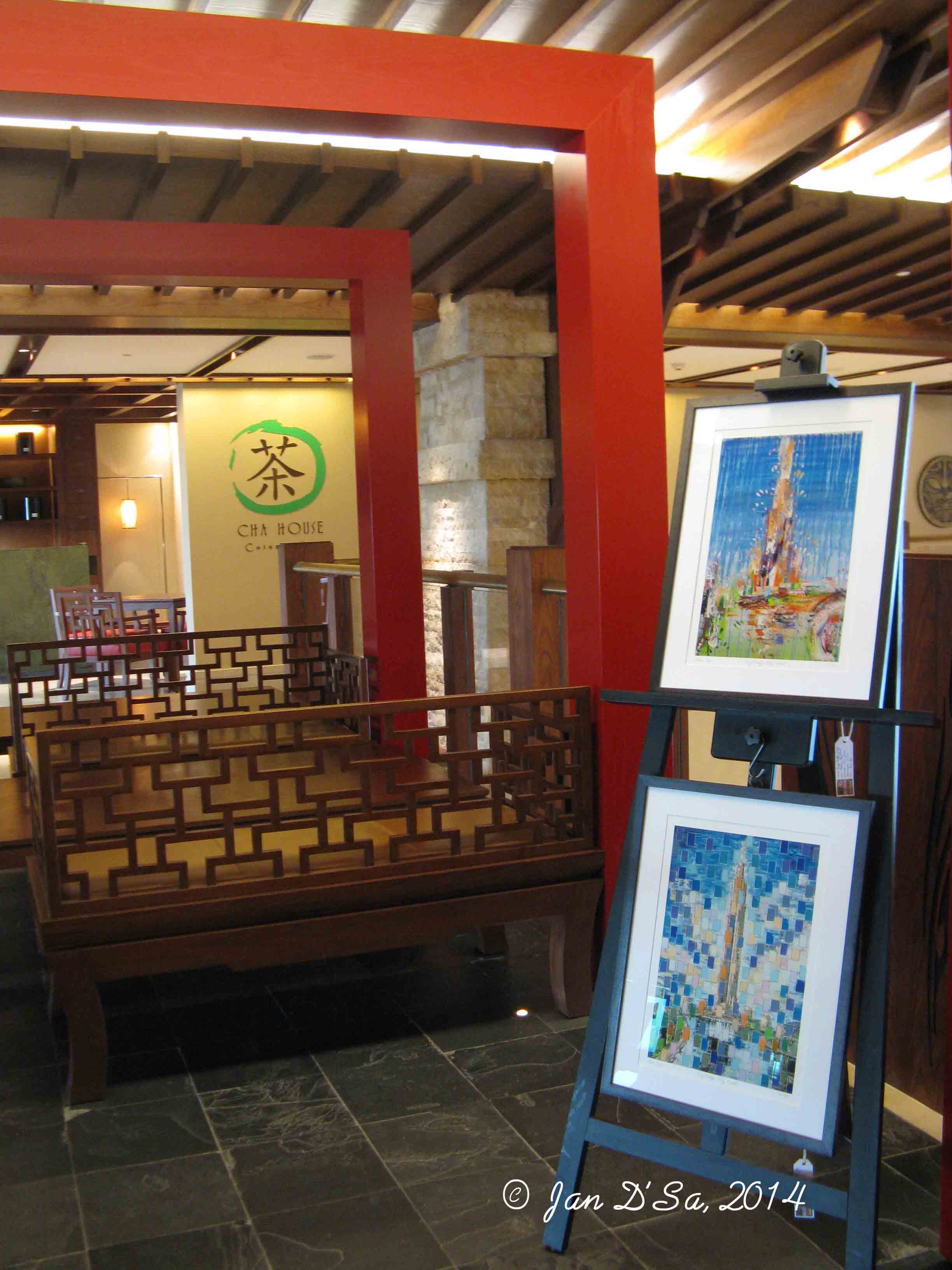
Prints of Olivia’s artwork, along with the originals, were displayed throughout the first floor of Hotel Sofitel Dubai the Palm, which, as you can see, also hosts various lounges and signature restaurants.
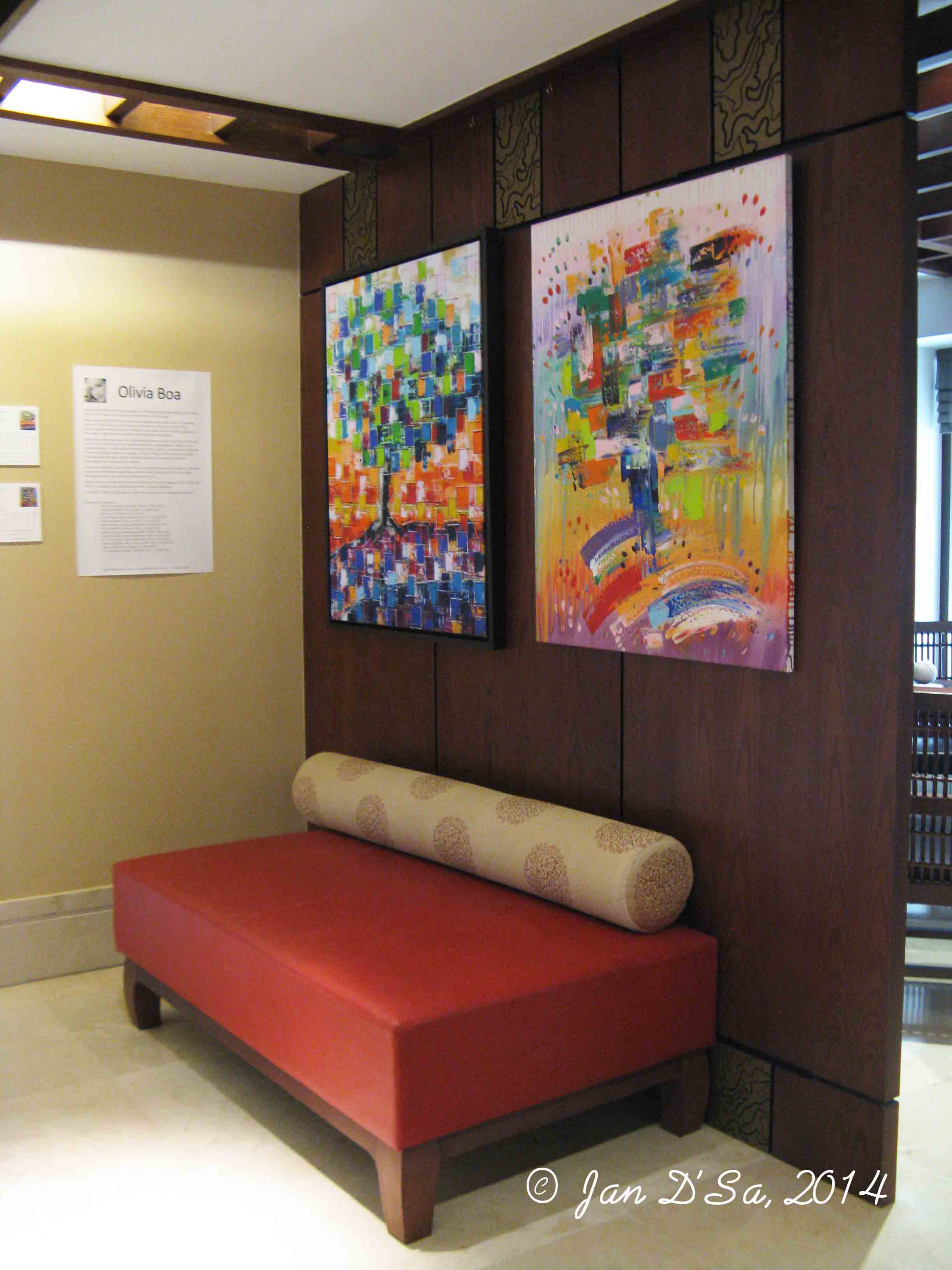
This sight greeted me when I walked to the 1st floor of the Hotel. Plush interiors of the hotel go well with the vibrantly coloured artwork by Olivia Boa.
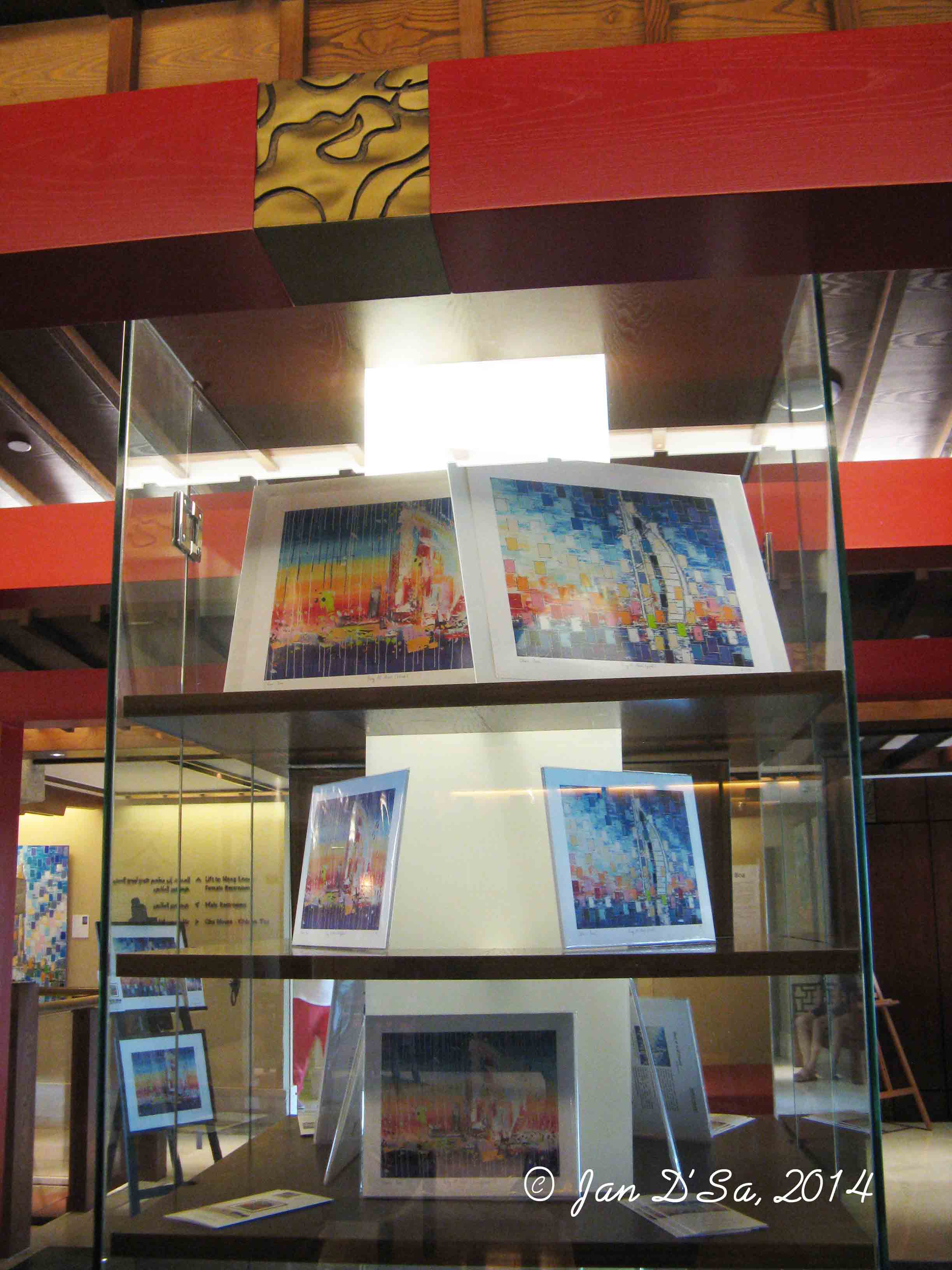
Red on wood along with golden rust decor make fine ceilings and show off Olivia’s artwork real well.
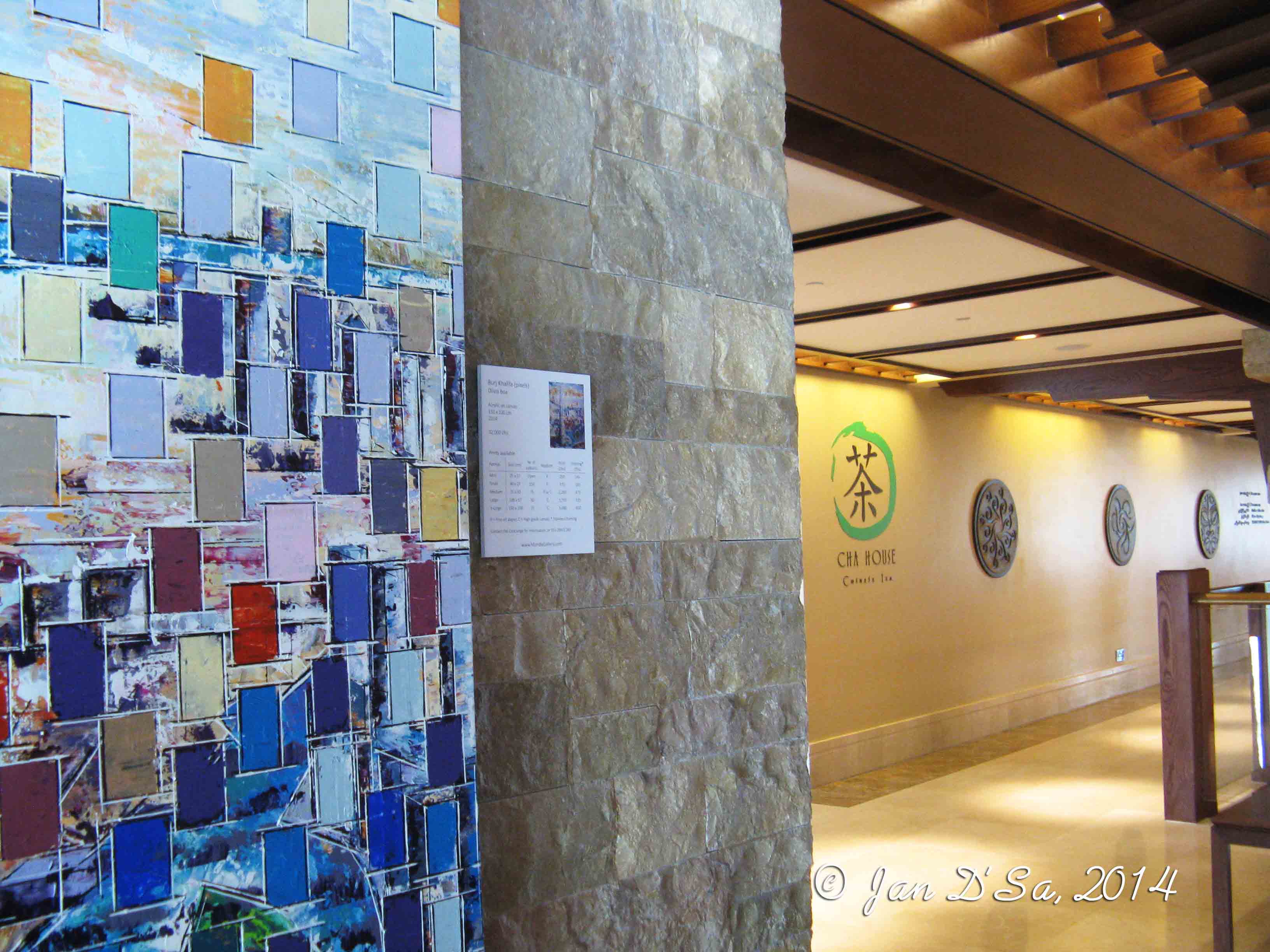
A snapshot that I like. Warm Pixel artwork next to a cold stone wall, leading to the corridor that takes you to a signature restaurant at Sofitel The Palm, Dubai.
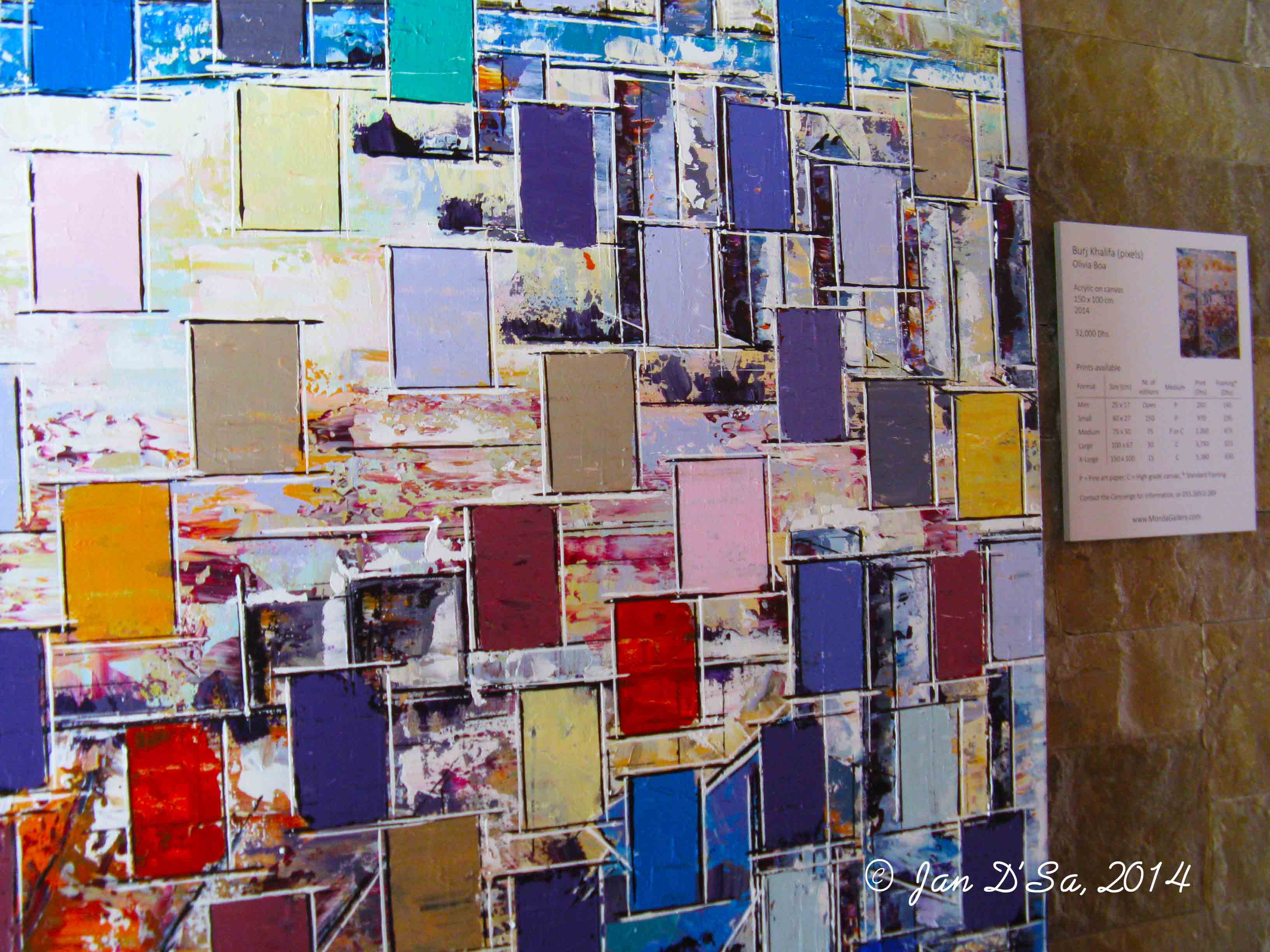
Olivia first does a painting from a real life scene. She then gets down to creating the ‘pixel’ boxes as you can see, making it a one of a kind piece of artwork.
A lover of life
I am always thrilled to meet people who have varied interests in fields that are not complimentary, but are not afraid to show it. An artist who is a doctor with a black belt. Most people are afraid to show their true selves for fear of rejection and being ostracised by their peers. I wanted to know what advice she could give such people so that they can pursue their dreams freely and with authenticity. This is what she said, “I love all the facets of life that is ours to choose and use as we see fit, without any limitations. Of course, we can be a doctor and an artist at the same time! And a model and also a boxer! I have been all of these myself. My view is that we not only can use several facets of life, but actually should do so! We have different parts in our brain, each having a specific purpose or role. For example when I paint, I primarily use the right hemisphere of my brain (the part dedicated to feelings, senses, emotion and art). When I work in science, I primarily use the left hemisphere of my brain (the part dedicated to logic, analysis, mathematics). When I box, I must be fast, precise, and therefore must react with reflexes! In this case, my synapses are put to work to quickly transmit electrical signals between neurones. By practicing art, science, and a martial sport, I happen to give my brain a comprehensive training!
“My advice to others would be to likewise, because if we don’t, we gradually lose connections between neurons. And if we don’t practice a sport, we gradually lose the rapidity of our synapses! The information in our brain will slow down over time.”
The live painting experience of a ‘Pixel’ artwork
Olivia had already painted a scene of Dubai, which, I think is the scene of the hotel’s main pool area, a photo of which you can see below. For the purpose of demonstrating live the pixel style, she remains very focussed, even though kids were swarming all around her because of the colours and live action. Watching her almost felt like mindful meditation.
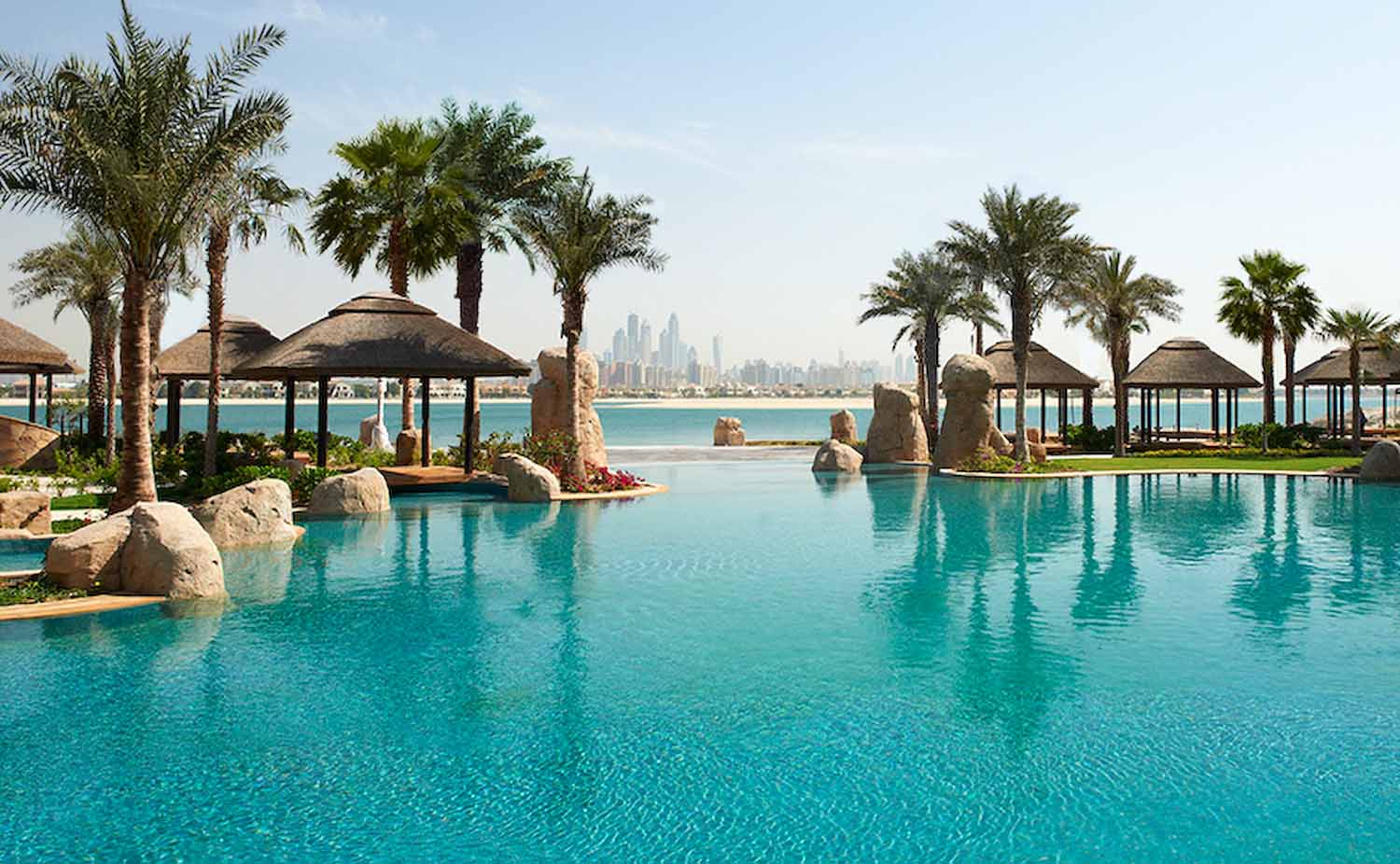
The main pool is the scene that greeted me when I walked to the back of the hotel, till I got sucked into Olivia’s art exhibition. Photo supplied and used with permission.
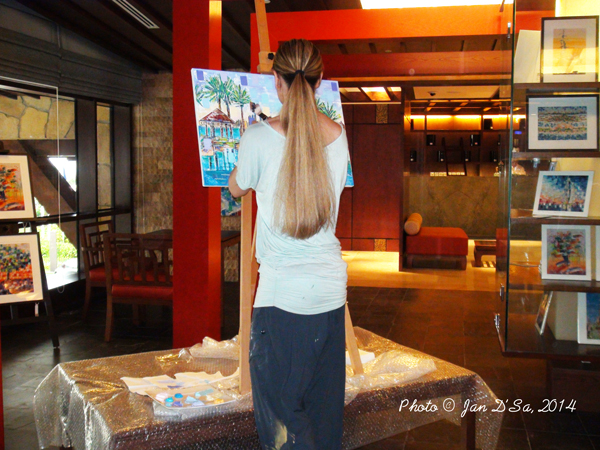
It’s so blissful, I think, to have the opportunity to paint in such a beautiful hotel that overlooks the sea on both sides, while your feet are firmly planted on original wooden flooring. It’s my kind of happiness!
For those of you who know me, I am a firm believer that art and arts, when applied to health and wellbeing, can help one to live life optimally. I asked Olivia to share her views on this. This is what she had to say. “We have been blessed by a brain with a fabulous embedded potential. We must use it as completely as possible! In our society, in adult age, we tend to use primarily the analytical part of our brain, and we tend to disown the emotional part.If we practice art or if we see an art exhibition, we mostly activate the emotional part of our brain. We become like a child, running on feelings and emotions, so we de-stress, and experience insouciance briefly! And we need a lot more of it in our society.For this reason art is really good for health and has a connection with the whole of our brain.” Thank you, Olivia!
The exhibition is ongoing at Hotel Sofitel Dubai the Palm till the 30th of June, 2014. Prints of artwork may be purchased from Monda Gallery as well.

